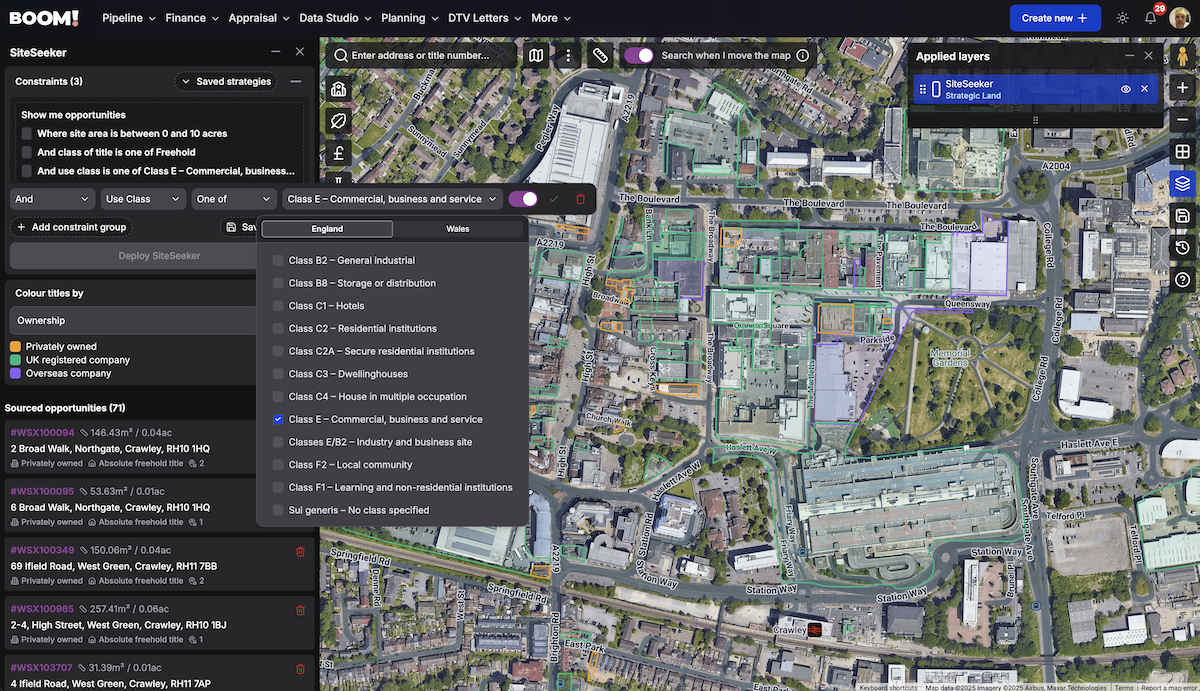Understanding Class MA Permitted Development







Class MA, introduced in 2021 and updated in 2024, is a permitted development right that allows for the conversion of commercial properties (Use Class E), such as shops, offices, restaurants, cafes, health services, nurseries, gyms, and leisure facilities, into residential dwellings without requiring full planning permission.
This initiative, replacing former Classes G, M, and O, aims to revitalise town centres by transforming vacant commercial spaces into much-needed homes and fostering vibrant mixed-use communities on struggling high streets.
Key Features and Changes to Class MA
No Size Limit: As of March 5, 2024, the previous restriction of a 1500 sqm maximum floor space for conversions has been removed;
No Vacancy Requirement: The prior condition that a building must have been vacant for at least three months before conversion is no longer in effect;
Broader Conversion Potential: These changes enable the conversion of larger commercial units and allow for the full conversion of buildings that were previously only partially convertible, including ground floors, upper floors, or entire structures.
Important Considerations for Class MA Conversions
While Class MA streamlines the conversion process, certain factors must be considered:
Use Class E Requirement: the property must have been in Use Class E for a minimum of two years;
Time Limit for Completion: development must be completed within three years of obtaining prior approval;
Impact Assessments: converting health centres and nurseries requires a prior assessment of the potential impact on local service provision;
Excluded Locations: standard exclusions apply for protected areas such as listed buildings, scheduled monuments, Sites of Special Scientific Interest, safety hazard zones, Article 2(3) land, and military explosives areas. However, conversions are permitted in conservation areas;
Additional Planning: a separate planning application may be necessary for significant external alterations like new windows;
Potential Fees: local authorities may impose a fee per new dwelling created, ranging from £100 to £5,000;
Article 4 Restrictions: some local authorities may implement Article 4 directions to restrict Class MA conversions in specific areas.
Class MA Prior Approval Requirements
Although full planning permission is not required, prior approval is still necessary and may involve assessments regarding:
Transport and highway impact;
Contamination risks;
Flood vulnerability;
Noise impact;
Window proposals;
Living space standards;
Impact on the local provision of services (for health centre or nursery conversions).
Identifying Class MA Opportunities with BOOM!'s SiteSeeker
SiteSeeker, BOOM!'s strategic site sourcing tech simplifies the process of finding suitable commercial properties for Class MA conversion within a chosen area.
It provides key details such as plot size, existing planning applications, leases and title information plus much much more. SiteSeeker also facilitates securing these sites by providing landowner contact information which can be integrated with BOOM!’s DTV letter-sending SaaS.